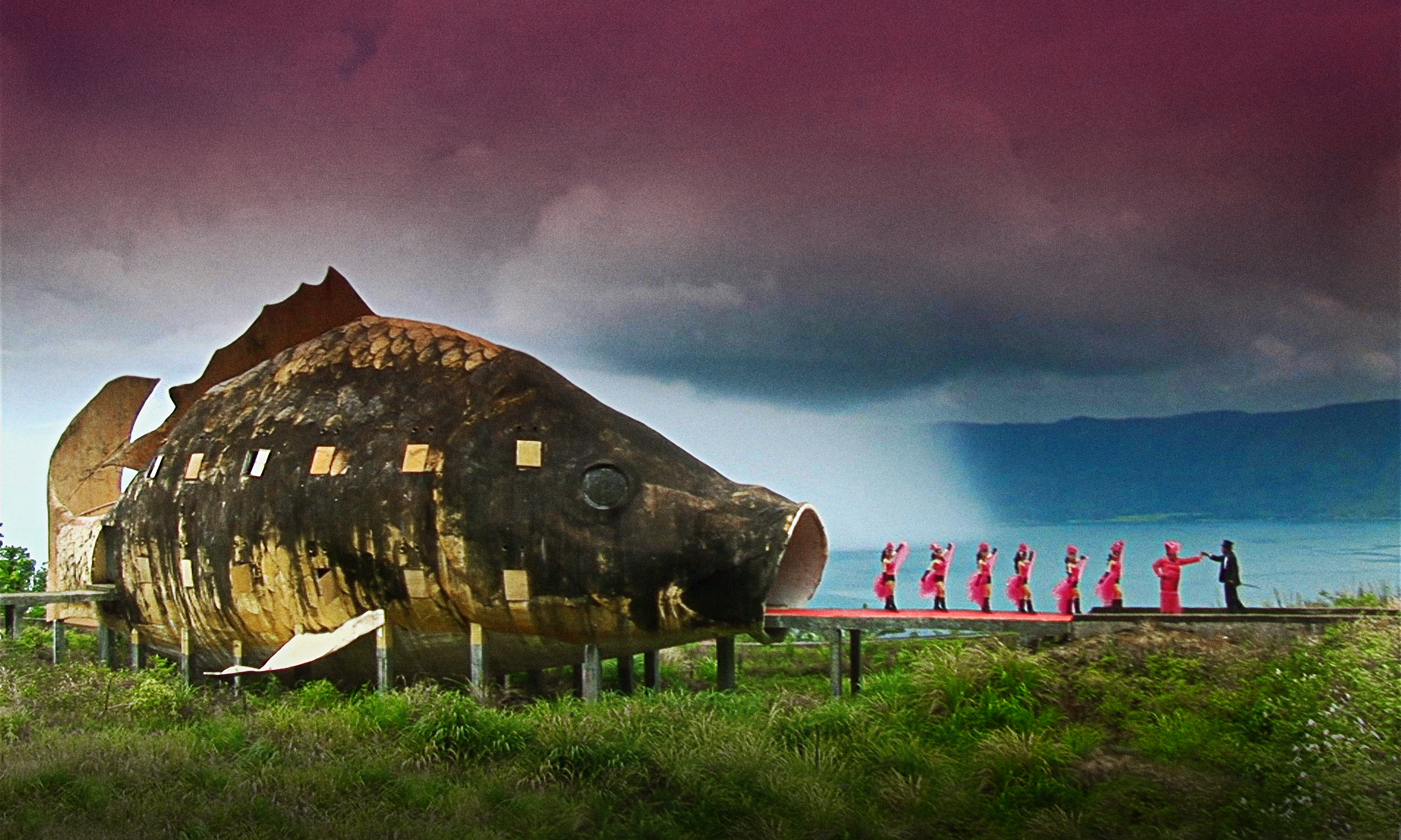The Act of Killing
Opens Fri., Aug. 2 at Varsity. Not rated. 122 minutes.
“It was like we were killing . . . happily.” The speaker is Anwar Congo, a dandy and former gangster reflecting on his movie-fed youth in mid-’60s Indonesia. He was one of the paramilitary forces licensed by the new military dictatorship to dispatch over one million “Communists”—a catchall meaning anyone who’d previously supported President Sukarno, with special emphasis on ethnic Chinese. Like Armenia and Rwanda, Indonesia belongs to that second tier of genocides outside modern European borders. During 1965–66, world attention was focused on Vietnam. The TV cameras weren’t rolling, an oversight that director Joshua Oppenheimer now corrects in the most unsettling fashion.
There are no mass graves here dug up by backhoe, no old newsreel footage, no historians or interviews with the families of the bereaved. Instead, Oppenheimer somehow ingratiated himself with Congo and his cohort, convincing them to make a movie that would garishly, heroically re-enact their past misdeeds. His method is patently a con, like the recent stunt documentary The Ambassador; he’s a liar in search of the truth. His naive yet murderous subjects frequently ask his opinion, off-camera, as if he were a sympathetic participant in the project. Outside Indonesia, they will be judged more harshly, but Oppenheimer bites his tongue on set. (A few graphics and intertitles supply the necessary context.)
What’s the efficient approach to killing without too much mess? Congo cheerfully demonstrates his method with the garrote, baling wire with a wood handle, wrapped around an actor’s neck. Watching Oppenheimer’s video playback, he says the costumes are all wrong—white pants would show the blood. Reshoots will be required. And maybe he should dye his hair. In the studio and a few bizarre outdoor tableaux with grinning showgirls, the perpetrators ritually restage their murders and massacres—it’s celebratory for them, perhaps cathartic on some level, but you could never imagine Nazis being treated in this grotesque, ironic manner. (Instead of the banality of evil, we have the kitsch of evil.)
Would Eichmann or Mengele or their foot-soldiers ever admit they were wrong? We live in a different era, of reality-TV confessions; people now behave according to, or cop to, whatever gets the best ratings. One of the killers says, “ ‘War crimes’ are defined by the winners.” He and Congo can express their remorse—whether genuine or just another act for the camera—from the safety of the winning side. Fifty years later, they know they won’t be prosecuted for their deeds. We watch the same movie, astonished, while they just smile.
bmiller@seattleweekly.com








